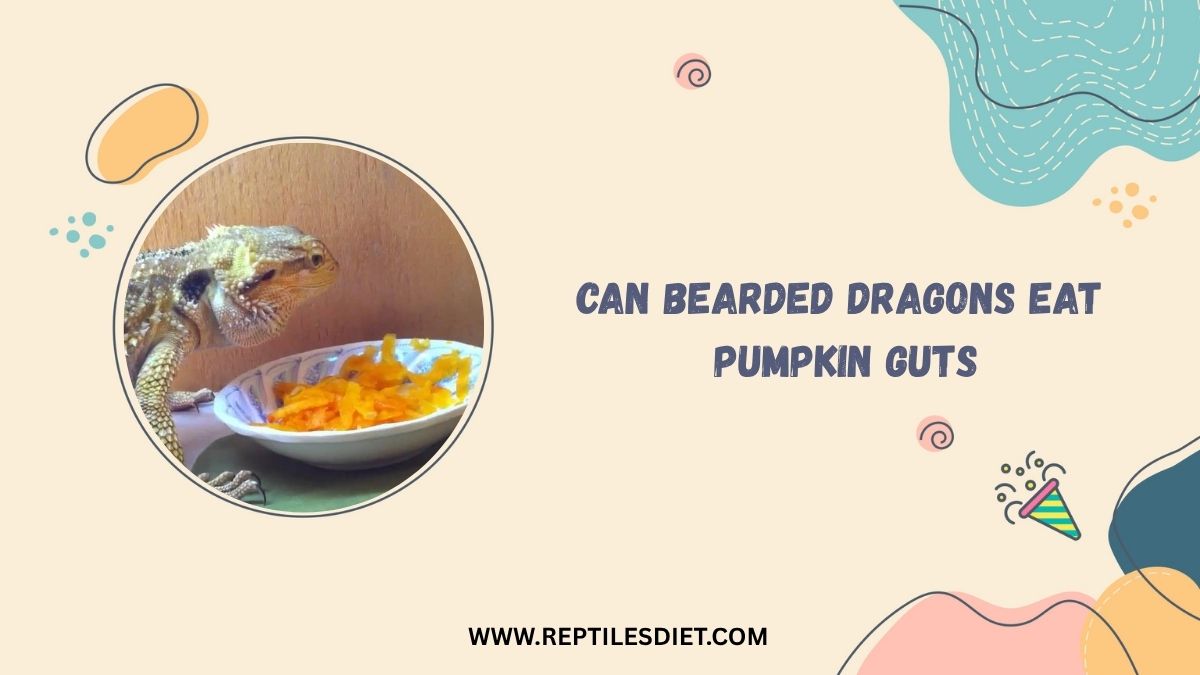Pumpkin season brings all kinds of fun—especially if you’re a bearded dragon owner wondering if your little buddy can enjoy it too!
Yes, bearded dragons can eat pumpkin guts occasionally. They’re safe in small amounts if finely chopped or grated. Avoid seeds. Pumpkin is non-toxic but shouldn’t be a regular part of their diet.
In this guide, we’ll explore whether pumpkin guts are okay for beardies, how to prepare them, and what to watch out for. Let’s make sure your dragon enjoys the season just as much as you—safely, happily, and with a full belly!
What Are Pumpkin Guts?
Pumpkin guts are the soft, stringy parts inside a pumpkin. They include the slimy pulp and seeds. When you cut open a pumpkin, these guts are the messy parts in the middle. People usually throw them away, but some pets, such as bearded dragons, might enjoy them if they are cleaned well.
Nutritional Profile of Pumpkin Guts
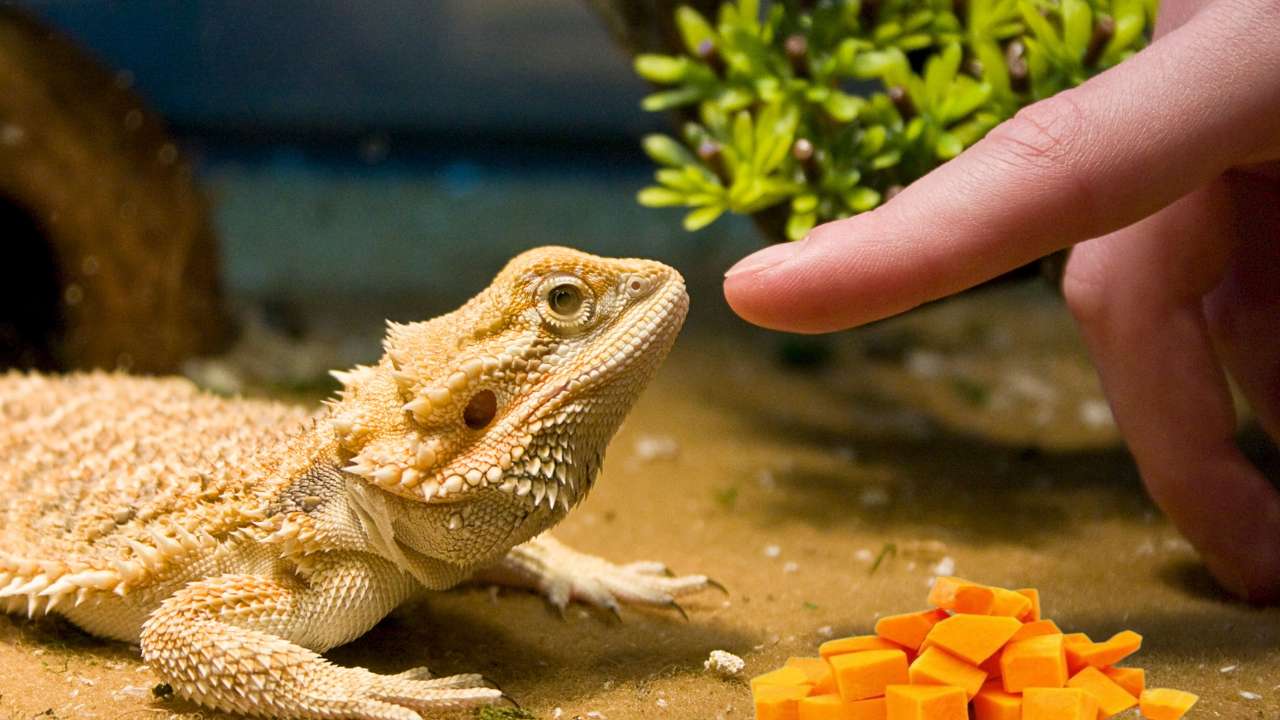
Pumpkin guts consist of the stringy, fibrous pulp found inside a pumpkin, often mixed with seeds. While the flesh of the pumpkin is more commonly discussed, the guts have a nutritional profile that can be considered for bearded dragons.
- Water: 94% (high moisture content, aiding hydration)
- Calories: 26 kcal (low in calories)
- Fiber: 0.5 g (moderate, supports digestion)
- Vitamin A: 426 µg (significant, supports the vision and immune health)
- Vitamin C: 9 mg (boosts immune system)
- Calcium: 21 mg
- Phosphorus: 44 mg
- Oxalates: Approximately 0.48 g (moderate, can affect calcium absorption)
Understanding Bearded Dragons’ Dietary Needs
Bearded dragons need a mix of healthy veggies, fruits, and insects to stay strong. They especially need calcium for their bones and protein for energy.
Providing them with the right foods helps them grow and stay healthy. Too much of one thing or the wrong food can make them sick.
Understanding Pumpkin Guts
Pumpkin guts have a lot of moisture and fiber but not much calcium. They can help your bearded dragon’s digestion because they’re soft and easy to eat. But pumpkin guts also have phosphorus, so don’t feed too much or too often to keep your dragon healthy.
How to Prepare Pumpkin Guts for Bearded Dragons
- Scoop out the pumpkin guts carefully, including seeds and stringy parts.
- Rinse the guts well with fresh water to remove dirt or pesticides.
- Remove most seeds or separate seeds if you plan to feed them separately.
- Chop the guts into small, bite-sized pieces for easy eating.
- Serve fresh and avoid leftover pumpkin guts to prevent spoilage.
- Offer pumpkin guts only as a treat, not as a daily food.
- Always watch your dragon try new foods to check for any issues.
Why Can’t Bearded Dragons Eat Pumpkin Every Day?
Pumpkin is tasty but has more phosphorus than calcium. Eating it every day can upset the balance your dragon needs for strong bones.
Too much pumpkin might cause health problems, so it’s best as a treat, not a regular meal. Variety keeps your dragon happy and healthy.
Can Bearded Dragons Eat Pumpkin Seeds?
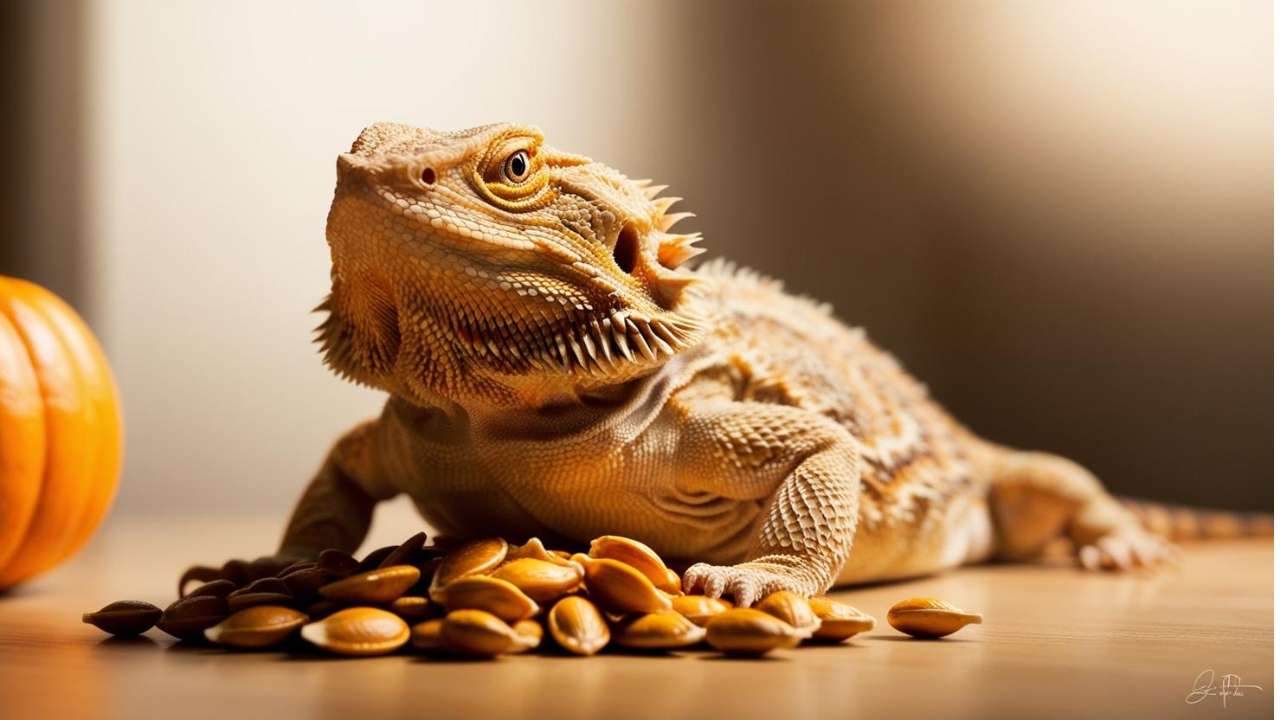
Pumpkin seeds are okay in small amounts but can be hard to digest. They have oxalates, which might stop your dragon from absorbing calcium properly. If you give seeds, remove the shell and offer just a few so they don’t upset your dragon’s tummy or health.
What Fruits and Veggies Can Bearded Dragons Eat More Often Than Pumpkin?
- Collard greens: Rich in calcium and safe for daily feeding.
- Mustard greens: Great for nutrition and often enjoyed by dragons.
- Dandelion greens: High in calcium and vitamins, perfect for regular meals.
- Bell peppers: Provide vitamins A and C, making them a good choice as a frequent treat.
- Carrots: Offer vitamins but feed in moderation due to sugar.
- Squash: Low in oxalates and good for daily feeding.
- Blueberries: A safe fruit option rich in antioxidants; feed occasionally.
- Apples: Sweet fruit to offer in small amounts sometimes.
Potential Benefits of Feeding Pumpkin to Your Bearded Dragon
- Rich in Vitamins: Pumpkin provides vitamins A and C, which support eye and immune health.
- Good Fiber Source: Helps with digestion and prevents constipation.
- Low in Calories: Great for maintaining a healthy weight.
- Hydrating: It contains a high water content, helping keep your dragon hydrated.
- Natural Antioxidants: Supports overall health and fight free radicals.
- Variety in Diet: Adds exciting new flavors and textures to your dragon’s meals.
Risks of Feeding Pumpkin to Your Bearded Dragon
1. Calcium to Phosphorus Ratio
Pumpkin has more phosphorus than calcium. Too much phosphorus can stop your dragon’s body from using calcium well. This can lead to weak bones and health problems. It’s essential to feed pumpkin only sometimes and balance it with other foods high in calcium.
2. Pumpkin Seeds Have Oxalates
Pumpkin seeds contain oxalates, which can stop your dragon’s body from absorbing calcium. Eating too many seeds may cause health issues, such as kidney problems. It’s best to avoid feeding pumpkin seeds or give them only in tiny amounts.
Alternatives to Pumpkin Guts
- Butternut squash: tasty and nutritious
- Sweet potatoes: rich in vitamins
- Carrots: good source of beta-carotene
- Green beans: low in phosphorus, safe to feed
- Bell peppers: high in vitamin C
- Zucchini: easy to digest and hydrating
Recommendations for Feeding Pumpkin to Bearded Dragons
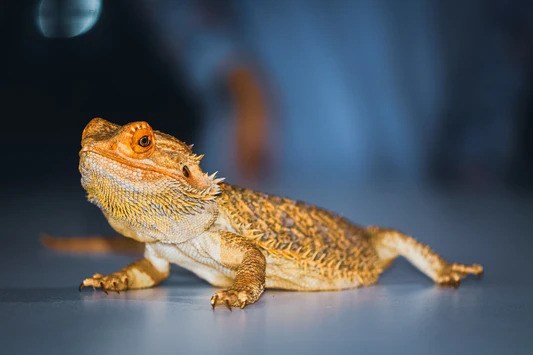
- Feed pumpkin guts only occasionally
- Remove seeds before feeding
- Serve small, bite-sized pieces
- Mix pumpkin with high-calcium veggies
- Avoid canned or processed pumpkin
- Always wash fresh pumpkin thoroughly
- Observe your dragon’s reaction after feeding
What Fruits Can Bearded Dragons Eat?
1. Can Bearded Dragons Eat Grapes?
Yes, bearded dragons can eat grapes. Make sure to wash them well and cut grapes into small pieces to avoid choking. Feed grapes only as a small treat, not too often.
2. Can Bearded Dragons Eat Apples?
Yes, apples are safe for bearded dragons. Remove the seeds and cut the apple into small pieces. Apples are tasty and provide vitamins, but they should be fed in moderation.
3. Can Bearded Dragons Eat Strawberries?
Yes, strawberries are fine for bearded dragons. Wash them well and cut them into small pieces. Strawberries are a good occasional treat full of vitamins and antioxidants.
4. Can Bearded Dragons Eat Blueberries?
Yes, blueberries are a safe and healthy choice. They have antioxidants that help your dragon stay strong. Feed only a few berries at a time to keep things balanced.
5. Can Bearded Dragons Eat Raspberries?
Yes, raspberries are okay for bearded dragons. Wash them first and feed small amounts. They have good nutrients but should not be a daily snack.
6. Can Bearded Dragons Eat Bananas?
Yes, but only a little. Bananas are sugary, so give them as a rare treat. Cut into tiny pieces and watch for any tummy upset. Moderation is key.
What Vegetables Can Bearded Dragons Eat?
1. Can Bearded Dragons Eat Spinach?
Spinach is not the best choice. It contains oxalates that can block calcium absorption. Feed spinach only once in a while, not often, to keep your dragon healthy.
2. Can Bearded Dragons Eat Peas?
Yes, peas are safe and tasty for bearded dragons. They have fiber and some vitamins. Feed peas cooked or raw but in small amounts as part of a balanced diet.
3. Can Bearded Dragons Eat Cauliflower?
Cauliflower is okay but should be fed rarely. It contains goitrogens, which may affect your dragon’s thyroid if consumed in excessive amounts. Small amounts occasionally are fine.
4. Can Bearded Dragons Eat Celery?
Celery is not a great choice. It contains a lot of water but low in nutrition. Feed celery only sometimes and in small amounts to avoid tummy problems.
5. Can Bearded Dragons Eat Rhubarb?
No, rhubarb is toxic to bearded dragons. It can cause serious health problems. Always avoid giving rhubarb to your pet.
What Else Can Bearded Dragons Eat?
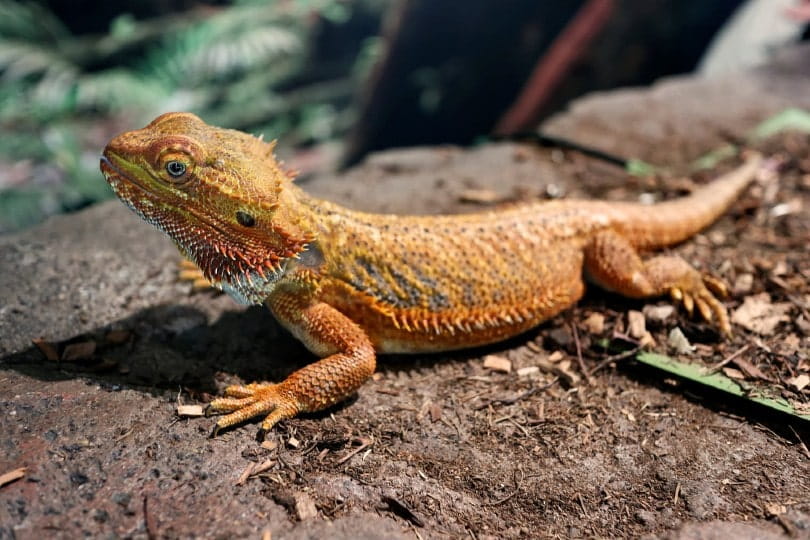
1. Can Bearded Dragons Eat Spiders?
Spiders are not safe for bearded dragons. Some spiders can bite or be poisonous. It’s better to avoid feeding spiders to your pet to keep them safe.
2. Can Bearded Dragons Eat Moths?
Yes, moths can be eaten if they are safe and pesticide-free. They are a good snack but should be given in moderation, alongside a varied diet.
3. Can Bearded Dragons Eat Crickets?
Crickets are a favorite treat! They are nutritious and excellent sources of protein. Make sure crickets are gut-loaded and dusted with calcium before feeding.
4. Can Bearded Dragons Eat Mice?
No, bearded dragons should not eat mice. They are not natural prey and can cause health problems. Stick to insects and veggies instead.
5. Can Bearded Dragons Eat Rabbits?
No, rabbits are too big and not part of a bearded dragon’s diet. Feeding rabbits is unsafe and can harm your pet.
6. Can Bearded Dragons Eat Frogs?
Frogs are not recommended. They may carry diseases or toxins. Avoid feeding frogs to your bearded dragon to keep them healthy and safe.
What Should A Bearded Dragon Eat Daily?
1. Best Insects For Bearded Dragons
Good insects include crickets, dubia roaches, and black soldier fly larvae. These are nutritious and easy to digest. Ensure that you gut-load and dust them with calcium before feeding.
2. What Foods Help Bearded Dragons Poop?
Leafy greens, such as collard greens, mustard greens, and squash, aid digestion. These foods add fiber and moisture, making it easier for your dragon to poop regularly and stay healthy.
3. What Are The Best Foods For Baby Bearded Dragons?
Baby dragons need mostly insects like small crickets and fruit flies. Offer veggies like finely chopped collard greens. This mix supports their fast growth and energy needs.
4. What Are The Best Foods For Pregnant Bearded Dragons?
Pregnant dragons benefit from more calcium-rich foods like collard greens and calcium-dusted insects. Protein is essential, so offer plenty of gut-loaded insects for strong eggs and healthy moms.
Pumpkin As Gutload
Pumpkins can be used as a gut load for feeder insects. It helps hydrate them and gives them extra nutrients. But don’t overdo it. A little pumpkin helps make the bugs healthier before feeding them to your dragon.
Can Bearded Dragons Eat Pumpkin Guts Everyday
No, pumpkin guts should only be given once in a while. They don’t have all the vitamins your dragon needs. Too much can cause tummy trouble. Treat it like a fun snack, not a regular meal.
Can Bearded Dragons Eat Radicchio
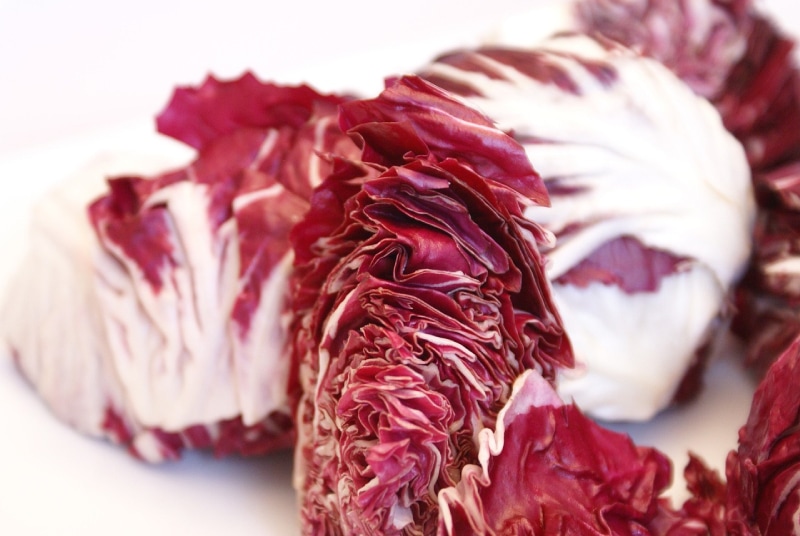
Yes, bearded dragons can eat radicchio sometimes. It has a bitter taste and isn’t the most nutritious, so use it as a mix-in with other leafy greens, not as the main vegetable.
Can Bearded Dragons Eat Pumpkin Puree
Yes, they can have plain, unsweetened pumpkin puree in small amounts. No sugar, spices, or pie filling! It can help if your dragon is constipated but only offer a spoonful once in a while.
Can Bearded Dragons Eat Pumpkin Flowers
Yes, bearded dragons can eat pumpkin flowers! They’re safe and offer a varied diet. Please make sure they’re clean, chemical-free, and pesticide-free. Feed them fresh, and don’t use too many at once.
Can Bearded Dragons Eat Cranberries
Bearded dragons can eat cranberries in small amounts. They’re tart and high in natural sugar, so don’t feed often. A small piece once in a while is enough. Avoid dried cranberries or ones with sugar.
Can Bearded Dragons Eat Zucchini
Yes, bearded dragons can eat zucchini. It’s low in calcium, so serve it as an occasional veggie. Grate it or chop it into tiny pieces for easier eating. Mix it with healthier greens.
Can Bearded Dragons Eat Tomatoes
Yes, bearded dragons can eat tomatoes, but only a tiny piece once in a while. Tomatoes are very acidic and low in calcium, which can upset their tummy if consumed too often. Always remove seeds and feed raw, ripe tomatoes in small amounts. Think of it as a treat, not a staple.
Canned Pumpkin
Canned pumpkin (plain and unsweetened) can be used in tiny amounts, especially to help with constipation. But don’t use pumpkin pie mix—it has sugar and spices that can harm your bearded dragon.
Constipated Dragon
If your dragon is constipated, try warm baths, gentle belly rubs, or a small spoon of pumpkin puree. Also, check their diet and lighting. Hydration and correct temperatures help keep their system moving.
My Bearded Dragon Loves Pumpkin!
That’s adorable! Many dragons love the texture and taste of pumpkin. Just remember it’s a treat, not a daily food. Offer a little at a time and mix with healthy greens for a balanced meal.
Can My Bearded Dragon Eat Pumpkin Raw?
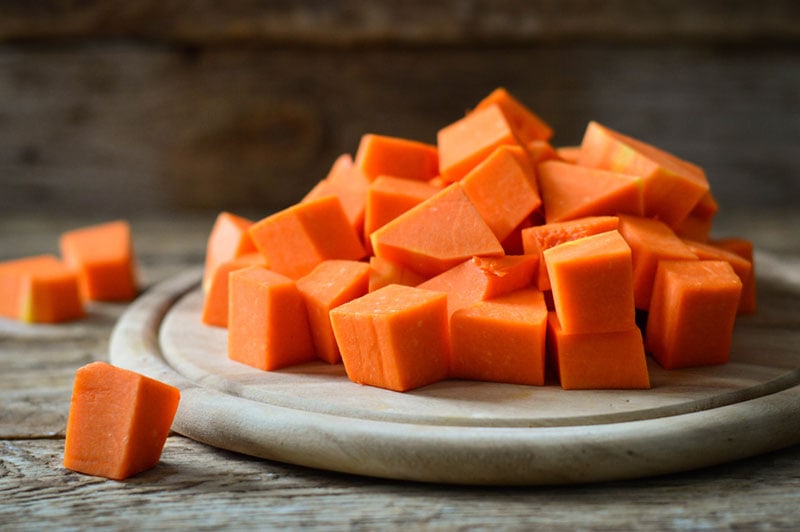
Yes, raw pumpkin is safe in small amounts. Grate it or cut it into tiny pieces so it’s easier to chew. Always wash it well and serve it fresh—no seasonings or cooked parts.
Did Pumpkin Make Her Sick??
If your dragon feels sick after eating pumpkin, stop feeding it and watch for signs like no poop, bloating, or loss of appetite. It may be too much fiber. Consult a reptile veterinarian if you are concerned.
Can Bearded Dragons Enjoy Dandelions In Their Diet?
Yes, dandelions are excellent for bearded dragons! The greens are full of calcium and very healthy. Just make sure they’re from a safe area with no chemicals or pesticides. They’re a great daily veggie.
FAQs
1. Can bearded dragons eat the inside of a pumpkin?
Yes, they can eat a little of the inside (the guts), but only sometimes. It’s not healthy enough to eat every day.
2. Can Beardies eat raw potato?
No, raw potatoes aren’t safe for bearded dragons. It contains harmful compounds and little nutritional value. It’s best to stick with safer, healthier veggies.
3. What do bearded dragons love eating?
Beardies love bugs like crickets and superworms! They also enjoy sweet fruits and leafy greens. Feeding them a mix keeps them happy and healthy.
4. Can beardies eat cucumbers?
Yes, but only sometimes. Cucumbers have lots of water and not many nutrients. Offer a little as a treat, not as a main food.
5. Can bearded dragons eat watermelon?
Yes, bearded dragons can occasionally have a small piece of watermelon. It’s sweet and fun—but too much sugar isn’t good for them.
6. What is a bearded dragon’s favorite vegetable?
Many dragons love leafy greens like collard greens, mustard greens, and dandelion leaves. These are healthy and safe for regular feeding.
7. What is the most common cause of death in bearded dragons?
Poor care is the most common cause—such as improper lighting, an inadequate diet, or not visiting a veterinarian. Always follow proper care to keep them healthy.
8. Why can’t bearded dragons eat bananas?
Bananas have too much phosphorus. That can mess up calcium levels and harm their bones. A small treat is okay—but not too often!
9. Can animals eat the inside of a pumpkin?
Yes, many animals like the inside of pumpkins. It’s rich in fiber but should always be given fresh and in small amounts.
10. What fruit is toxic to bearded dragons?
Avocado is toxic and should never be fed. It contains a chemical that can hurt your dragon’s heart and breathing. Avoid it completely.
Conclusion
Pumpkin guts are safe for bearded dragons as an occasional treat. They offer hydration and fiber but lack essential calcium. Always serve them fresh, finely chopped, and seed-free. Balance with nutrient-rich veggies and insects. With proper care, your dragon can enjoy pumpkin season safely and happily. Moderation is the key!

